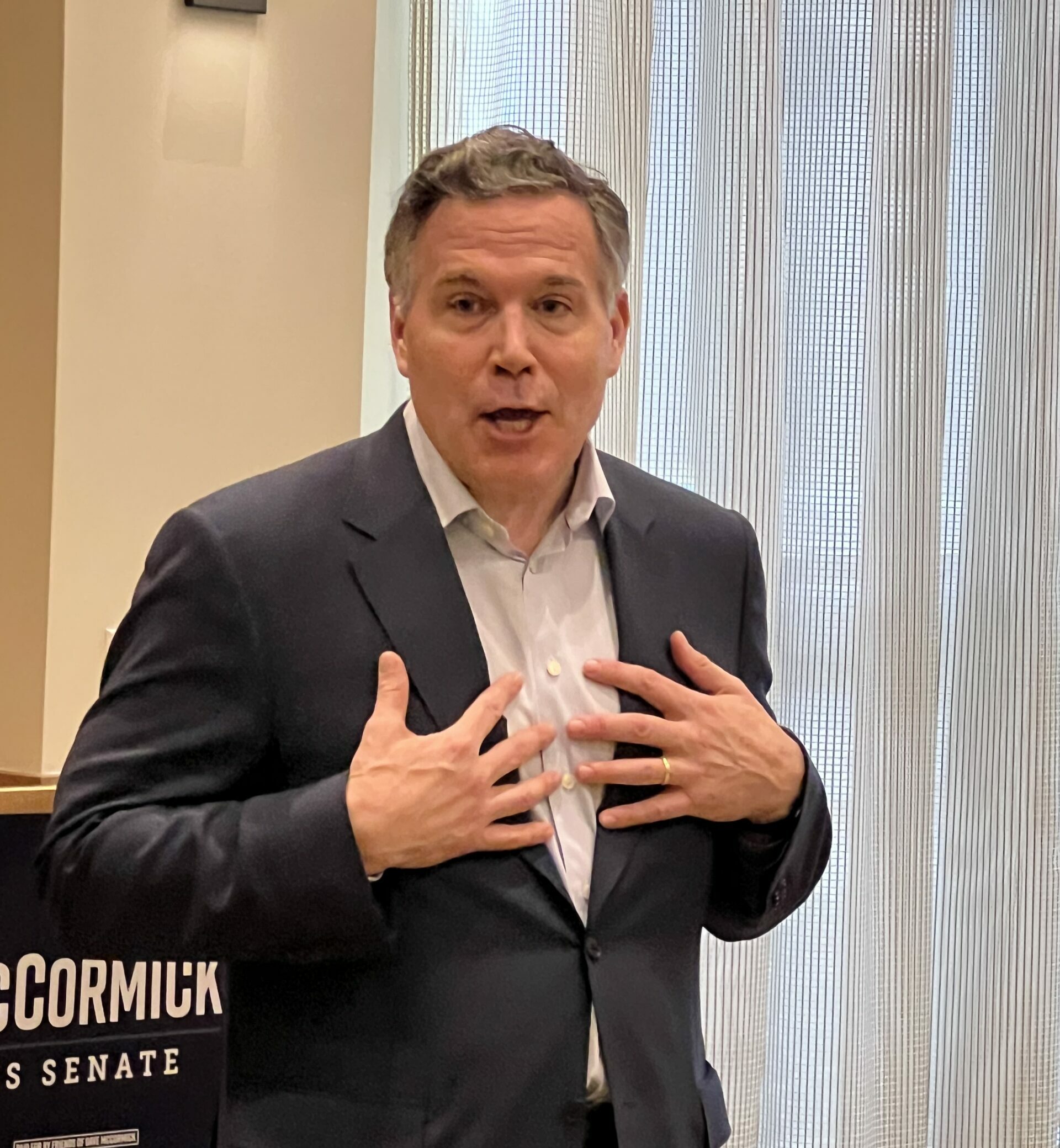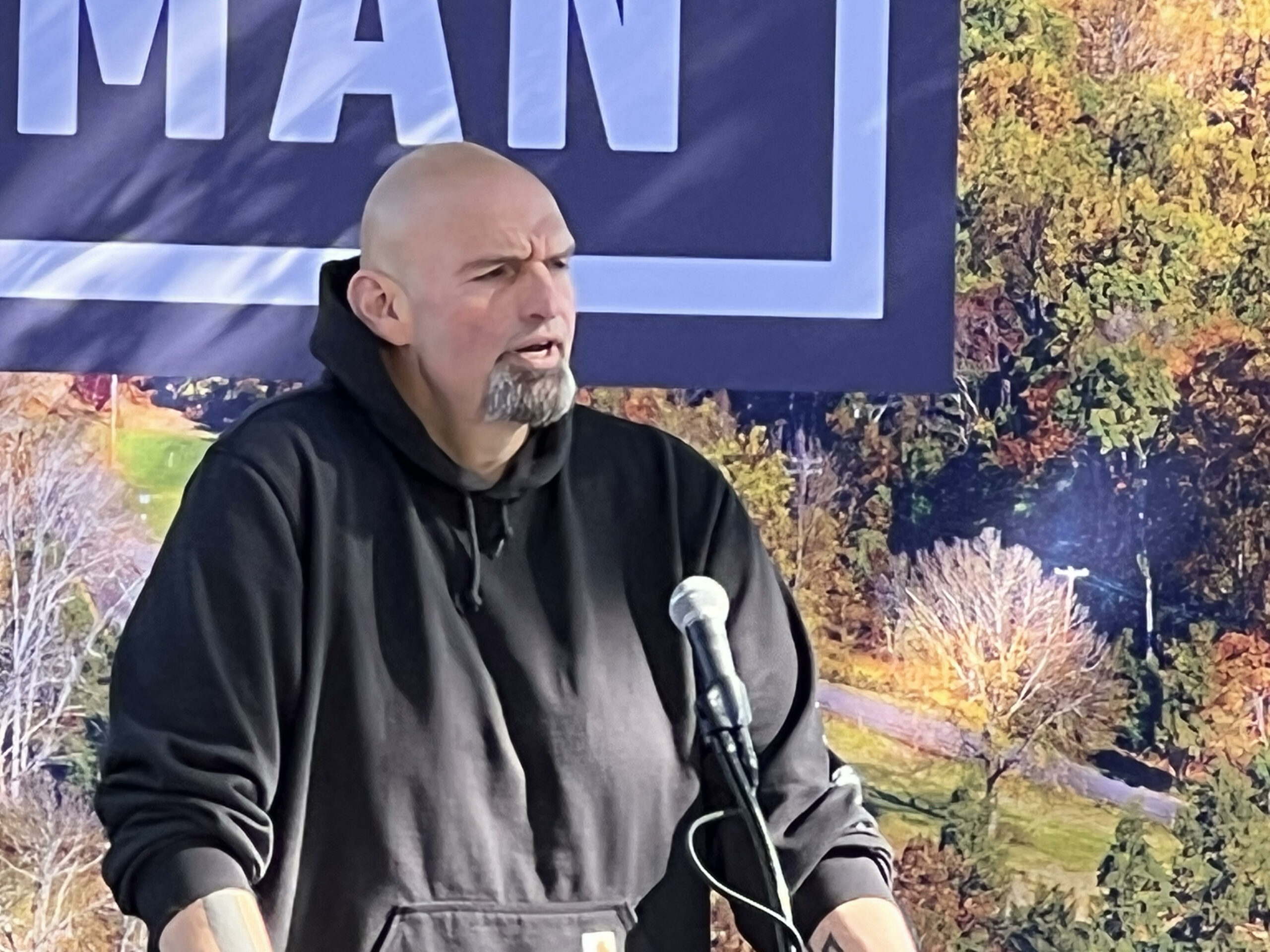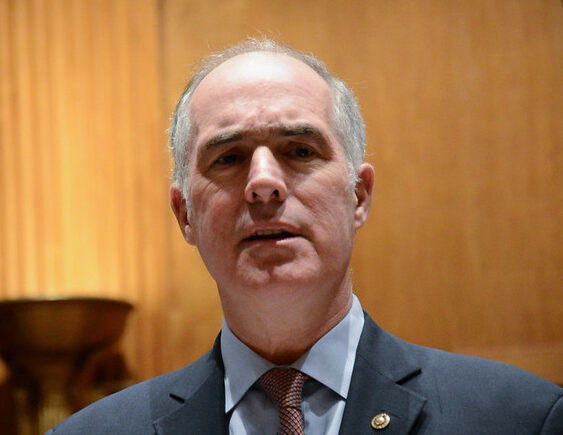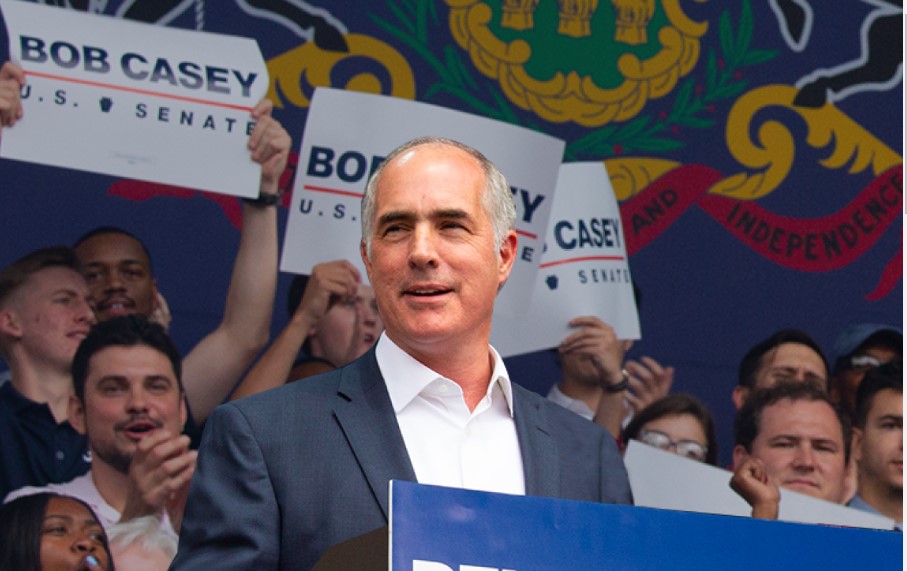Dean, Houlahan Boycott Netanyahu Speech to Congress

Local U.S. Reps. Madeleine Dean (D-Montgomery) and Chrissy Houlahan (D-Chester) both participated in the boycott of Israeli Prime Minister Benjamin Netanyahu’s speech to Congress on Wednesday, sending a political message to their Delaware Valley constituents.
Rep. Brian Fitzpatrick (R-Bucks) was on hand to hear Netanyahu’s remarks, as were Sens. Bob Casey and John Fetterman — the latter abandoning his usual sweats-and-shorts attire and donning a suit and (Israel-blue) tie.
The Democratic Party has been roiled by divisions since the Oct. 7 Hamas terror attack on Israel and the Jewish State’s military response. Democrats are divided over how to respond to protests in which young, politically progressive crowds chant, “From the River to the Sea, Palestine Shall Be Free” — a phrase viewed by many as antisemitic.
Those protests continued outside the U.S. Capitol on Wednesday, where anti-Israel activists burned the U.S. flag and defaced historic monuments. Some protesters even waved Hamas flags and declared their solidarity with the terrorist group.
Netanyahu called out the protesters during his speech.
“When the tyrants of Iran, who hang gays from cranes and murder women for women for not covering their hair, are praising, promoting and funding you, you have officially become Iran’s useful idiots,” Netanyahu said.
“Some of these protesters hold up signs saying, ‘Gays for Gaza,’” he added. “They might as well hold up signs saying ‘Chickens for KFC.’”
About half the Democratic caucus in the House and Senate skipped Netanyahu’s speech, and Vice President Kamala Harris declined to perform her duties of presiding over the Senate. Instead she spoke at a sorority event in Indiana.
Dean made her reasons for boycotting Netanyahu clear in a post on X, “I respect our institution, open dialogue, and collaboration with allies. But a line must be drawn. I will not attend today’s address. Mr. Netanyahu will not lecture me on morality and justice.”
David Winkler, Dean’s Republican opponent, replied on X.
“You are one of the most Antisemitic congresswomen serving today. How dare you turn your back on Israel, a Major Non-NATO US Ally of the United States. This isn’t leadership; you hate Jews & just won’t say it outright,” Winkler said. “I stand in solidarity with our Jewish community & Israel against Hamas & the hateful Pro Palestine extremists.”
In a statement, Houlahan laid out her reasons for boycotting Netanyahu’s speech.
“I chose not to attend Prime Minister Netanyahu’s joint address to Congress. It was an enormously difficult decision. My priority with this conflict is and has always been, to use my position to aid in finding real solutions for enduring peace, a two-state solution, the release of hostages, and expanded humanitarian aid for those suffering in Gaza, the West Bank, and Israel.
“I believe that centering attention on this speech at this time would not only be a distraction from these important goals, which include a ceasefire agreement, but may, in fact, make these goals less attainable,” said Houlahan.
Her GOP opponent, Neil Young, also responded.
“Chrissy Houlahan’s decision to boycott Prime Minister Netanyahu’s address to Congress is a disgraceful rejection of our valuable Jewish allies and friends. [Houlahan] explained that she didn’t want to be a distraction by attending but instead became a distraction by explaining why she didn’t want to be a distraction. Houlahan took a day off while Israel is fighting for [its] survival,” Young said.
In his speech, Netanyahu thanked both President Joe Biden, who calls himself an “Irish American Zionist,” and former President Donald Trump, the author of the Abraham Accords, for their support of Israel.
“For Israel never again must not be an empty promise,” he said. “It must always be a sacred vow. And after Oct 7th, never again is now.”
He also called out the protesters outside the Capitol while he spoke, who had camped out on university campuses this past spring.
Defeating the enemy requires both “courage and clarity,” he said. “And clarity begins with knowing the difference between good and evil. I think many anti-Israel protesters, many chose to stand with evil. They stand with Hamas. They stand with rapists and murderers.”
Netanyahu, a Cheltenham High School graduate, also condemned the university presidents, including from his alma mater MIT, who testified before Congress and could not condemn students calling for the genocide of Jews 80 years after the Holocaust, saying it depended on the context.
He pointed out the claim that Israel is a colonial state but pointed out, “for nearly 4,000 years, Israel has been the homeland of the Jewish people.”
“It will always be our home,” he said.
Please follow DVJournal on social media: X@DVJournal or Facebook.com/DelawareValleyJournal












